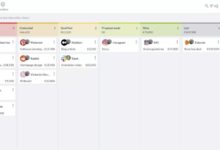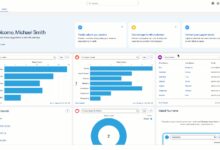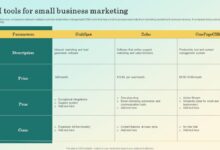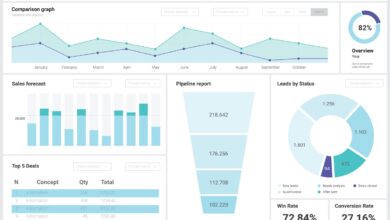Azure CRM System for Small Teams Generating B2B Leads: 7 Powerful Strategies to Skyrocket Growth
Looking for a smarter way to generate B2B leads? Discover how an Azure CRM system for small teams generating B2B leads can transform your sales process with automation, insights, and seamless integration.
Why an Azure CRM System for Small Teams Generating B2B Leads Is a Game-Changer

Small teams often struggle with limited resources, scattered data, and inefficient workflows. An Azure CRM system for small teams generating B2B leads offers a scalable, cloud-based solution that centralizes customer data, automates repetitive tasks, and empowers teams to focus on what matters: closing deals.
Centralized Data Management for Smoother Operations
One of the biggest challenges for small B2B teams is managing customer information across spreadsheets, emails, and sticky notes. With an Azure CRM system for small teams generating B2B leads, all contact details, interactions, and deal stages are stored in one secure, accessible location.
- Eliminates data silos between sales, marketing, and support
- Enables real-time updates visible to all team members
- Reduces errors from manual data entry
This centralization ensures that no lead falls through the cracks and every team member is on the same page. According to Microsoft’s official documentation, Dynamics 365, which integrates seamlessly with Azure, provides enterprise-grade data management even for small teams.
Scalability Without the Overhead
Small teams need tools that grow with them. Unlike legacy CRM systems that require heavy infrastructure, an Azure CRM system for small teams generating B2B leads scales dynamically based on usage.
- Pay-as-you-go pricing models reduce upfront costs
- Automatic updates ensure you’re always on the latest version
- Global data centers provide high availability and redundancy
“The cloud is not just a technology shift—it’s a business transformation.” — Satya Nadella, CEO of Microsoft
This scalability means you can start small and expand features like AI insights, marketing automation, or customer service modules as your team and customer base grow.
How Azure CRM Integrates with Microsoft 365 for Seamless Workflow
For small teams already using Microsoft 365, integrating an Azure CRM system for small teams generating B2B leads is a natural next step. The synergy between Outlook, Teams, Excel, and CRM tools like Dynamics 365 streamlines daily operations.
Synchronize Emails and Calendar Events Automatically
Manually logging emails and meetings is a time-sink. With Azure CRM integration, every email sent or received in Outlook can be automatically logged against a contact or deal.
- Track client communication without switching apps
- Schedule follow-ups directly from the CRM
- View meeting history and notes in one timeline
This integration reduces administrative overhead and ensures accurate activity tracking. Learn more about this integration on Microsoft’s Dynamics 365 for Outlook page.
Collaborate in Real-Time via Microsoft Teams
Microsoft Teams has become the hub for remote collaboration. When connected to an Azure CRM system for small teams generating B2B leads, Teams becomes a command center for sales activities.
- Receive CRM notifications (e.g., deal updates) directly in Teams
- Launch video calls with clients from within the CRM record
- Share deal insights with team members via chat or channels
This real-time collaboration accelerates decision-making and keeps everyone aligned, even in distributed teams.
Leveraging AI and Automation in Your Azure CRM System
One of the most underrated advantages of an Azure CRM system for small teams generating B2B leads is its built-in AI capabilities. These tools help small teams punch above their weight by automating lead scoring, predicting deal closures, and suggesting next steps.
AI-Powered Lead Scoring and Prioritization
Not all leads are created equal. Azure CRM uses machine learning models to analyze historical data and behavior patterns to score leads based on their likelihood to convert.
- Assign scores based on engagement (email opens, website visits, content downloads)
- Flag high-intent leads for immediate follow-up
- Reduce time spent on low-quality prospects
This intelligent prioritization allows small teams to focus their limited bandwidth on the most promising opportunities. Microsoft’s AI for Sales suite provides these capabilities out of the box.
Automated Workflows to Save Time
Automation is a force multiplier for small teams. An Azure CRM system for small teams generating B2B leads can automate routine tasks such as:
- Sending follow-up emails after a demo
- Updating deal stages based on trigger events
- Assigning leads to sales reps based on territory or availability
For example, when a lead downloads a whitepaper, the CRM can automatically tag them, send a thank-you email, and notify the sales rep—all without human intervention. This reduces response time and increases conversion rates.
Customization and Flexibility for Niche B2B Markets
Every B2B industry has unique sales cycles and data requirements. A major strength of an Azure CRM system for small teams generating B2B leads is its high degree of customization.
Adaptable Data Fields and Pipelines
Whether you’re selling SaaS, consulting services, or industrial equipment, you can tailor the CRM to match your sales process.
- Create custom fields for industry-specific data (e.g., contract length, technical requirements)
- Design custom sales pipelines with unique stages (e.g., Discovery, Technical Review, Legal Approval)
- Use forms and views optimized for your team’s workflow
This flexibility ensures the CRM supports your process—not the other way around.
Power Apps and Power Automate Integration
Microsoft’s Power Platform (Power Apps, Power Automate, Power BI) integrates natively with Azure CRM, allowing small teams to build custom solutions without coding.
- Build a custom app to track client onboarding progress
- Create automated approval workflows for pricing exceptions
- Generate real-time dashboards using Power BI
According to Microsoft, over 14 million users leverage the Power Platform to extend their CRM and ERP systems. This empowers small teams to innovate without hiring developers.
Security and Compliance: Built for Enterprise, Accessible for Small Teams
When handling sensitive B2B client data, security isn’t optional. An Azure CRM system for small teams generating B2B leads inherits Microsoft’s enterprise-grade security framework, giving small teams peace of mind.
Advanced Data Encryption and Access Controls
Azure CRM ensures data is encrypted both at rest and in transit, meeting global compliance standards.
- Role-based access control (RBAC) limits data visibility by team role
- Multi-factor authentication (MFA) protects user accounts
- Activity logs track who accessed or modified records
This level of security is typically reserved for large enterprises, but Azure makes it accessible and affordable for small teams.
GDPR, HIPAA, and Industry Compliance Ready
If your B2B business operates in regulated industries (e.g., healthcare, finance), compliance is critical. Azure CRM supports a wide range of compliance certifications.
- GDPR compliance for European clients
- HIPAA readiness for healthcare-related data
- ISO 27001, SOC 1/2, and CCPA adherence
Microsoft publishes a comprehensive compliance documentation portal detailing all certifications, helping small teams meet legal requirements with confidence.
Cost-Effectiveness and ROI of Azure CRM for Small Teams
Many small teams assume CRM systems are too expensive. However, an Azure CRM system for small teams generating B2B leads offers a compelling return on investment (ROI) by increasing efficiency and reducing churn.
Transparent Pricing Models
Microsoft offers tiered pricing for Dynamics 365, allowing small teams to start with essential features and scale up.
- Dynamics 365 Sales Professional: ~$65/user/month (includes core CRM and AI features)
- Dynamics 365 Sales Premium: ~$95/user/month (adds forecasting, territory management)
- Free trials and non-profit discounts available
Compared to hiring an additional sales rep or losing deals due to poor follow-up, the cost is minimal. A study by Nucleus Research found that CRM systems deliver an average ROI of $8.71 for every dollar spent.
Measuring ROI with Built-In Analytics
Understanding the impact of your CRM is crucial. Azure CRM includes robust analytics to track KPIs like:
- Lead conversion rate
- Average deal size
- Sales cycle length
- Customer acquisition cost (CAC)
With Power BI integration, you can visualize trends and identify bottlenecks. For example, if your sales cycle is longer than industry benchmarks, you can drill down to see where deals are stalling—whether it’s in technical review or contract negotiation.
Real-World Success Stories: Small Teams Winning with Azure CRM
Theoretical benefits are great, but real-world results matter more. Let’s look at how small B2B teams have leveraged an Azure CRM system for small teams generating B2B leads to achieve measurable success.
Tech Startup Cuts Sales Cycle by 30%
A 10-person SaaS startup in Austin used Azure CRM to automate lead nurturing and track customer engagement. By implementing AI-driven lead scoring and automated email sequences, they reduced their average sales cycle from 60 to 42 days.
- Increased qualified leads by 45% in 6 months
- Improved team productivity with centralized task management
- Integrated with their existing Microsoft 365 stack seamlessly
They credited the CRM’s ease of setup and Microsoft integration as key factors in their rapid adoption.
Consulting Firm Doubles Client Retention
A boutique consulting firm with 8 employees struggled with post-sale engagement. After deploying an Azure CRM system for small teams generating B2B leads, they began tracking client satisfaction, project milestones, and renewal dates.
- Introduced automated check-in emails 30 days before contract expiry
- Assigned relationship managers with clear visibility into client history
- Used Power BI to identify at-risk clients based on engagement drops
Within a year, client retention improved from 58% to 82%, significantly boosting recurring revenue.
Getting Started: Implementation Tips for Small Teams
Adopting a new CRM can be daunting, but with the right approach, small teams can go live in weeks—not months. Here’s how to implement an Azure CRM system for small teams generating B2B leads successfully.
Start with Clear Goals and Data Cleanup
Before migration, define what success looks like. Is it faster lead response time? Higher conversion rates? Better team collaboration?
- Audit existing lead and customer data for accuracy
- Remove duplicates and outdated records
- Map your current sales process to CRM stages
This preparation ensures a clean, efficient setup and prevents garbage-in, garbage-out scenarios.
Train Your Team with Hands-On Workshops
User adoption is the biggest hurdle in CRM success. Avoid overwhelming your team with complex training.
- Run short, interactive sessions focused on daily tasks (e.g., logging calls, updating deals)
- Appoint a CRM champion within the team
- Use Microsoft’s free Learning Paths for self-paced training
Teams that invest in onboarding see 3x higher adoption rates, according to Microsoft’s customer success reports.
Iterate and Optimize Over Time
Your CRM shouldn’t be a set-it-and-forget-it tool. Regularly review performance and gather team feedback.
- Monthly check-ins to assess what’s working and what’s not
- Add automation rules based on new insights
- Expand to marketing or service modules as needed
Continuous improvement ensures your Azure CRM system for small teams generating B2B leads evolves with your business.
What is an Azure CRM system for small teams generating B2B leads?
An Azure CRM system for small teams generating B2B leads refers to a cloud-based customer relationship management solution built on Microsoft Azure, often using Dynamics 365, tailored for small sales teams to manage leads, automate workflows, and improve conversion rates through AI and integration with Microsoft 365.
How much does an Azure CRM system cost for a small team?
Pricing starts at around $65 per user per month for Dynamics 365 Sales Professional. Small teams can begin with a few licenses and scale as needed, with options for free trials and non-profit discounts.
Can I integrate Azure CRM with my existing tools?
Yes. Azure CRM integrates natively with Microsoft 365, Teams, Outlook, and Power Platform. It also supports third-party integrations via APIs, including email marketing tools, calendars, and accounting software.
Is Azure CRM secure for handling B2B client data?
Absolutely. Azure CRM inherits Microsoft’s enterprise-grade security, including data encryption, multi-factor authentication, and compliance with GDPR, HIPAA, ISO 27001, and other global standards.
Do I need technical skills to set up Azure CRM?
No. While advanced customization may require Power Platform knowledge, basic setup and usage are designed to be user-friendly. Microsoft provides guided setup wizards, templates, and free training resources to help small teams get started quickly.
Adopting an Azure CRM system for small teams generating B2B leads is not just a tech upgrade—it’s a strategic move to boost efficiency, improve lead conversion, and scale sustainably. With powerful AI, seamless Microsoft 365 integration, enterprise-grade security, and flexible pricing, small teams can compete like industry giants. By starting with clear goals, cleaning data, training users, and iterating over time, even a 5-person team can unlock massive ROI. The future of B2B sales isn’t about size—it’s about intelligence, agility, and the right tools. And with Azure CRM, that future is already here.
Azure CRM system for small teams generating B2B leads – Azure CRM system for small teams generating B2B leads menjadi aspek penting yang dibahas di sini.
Further Reading:






